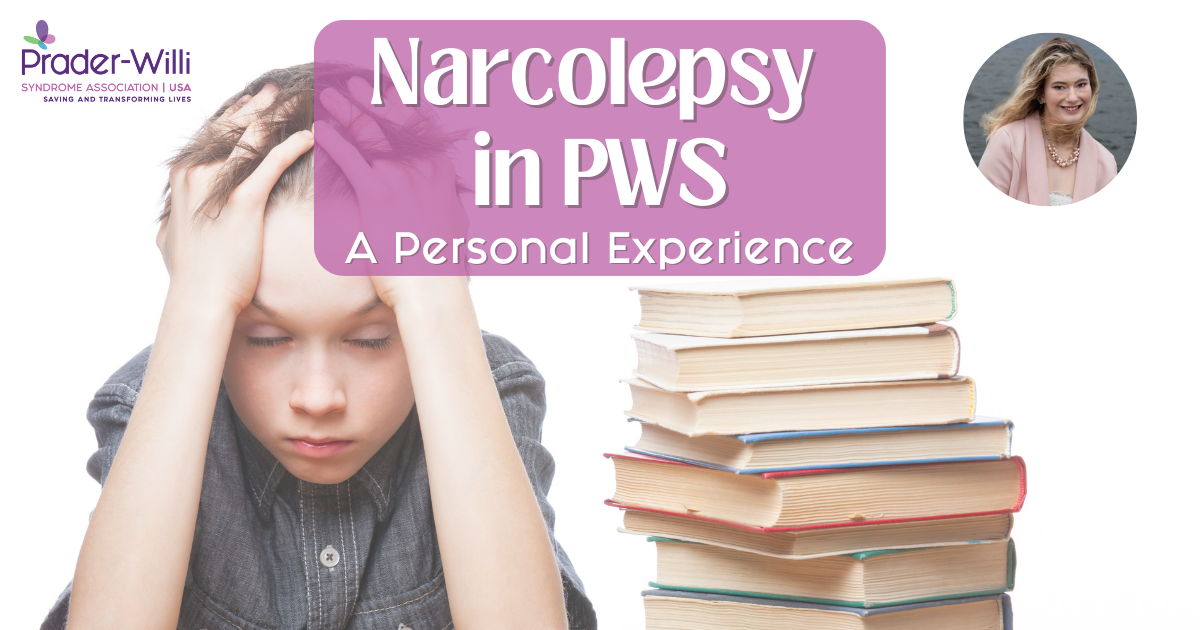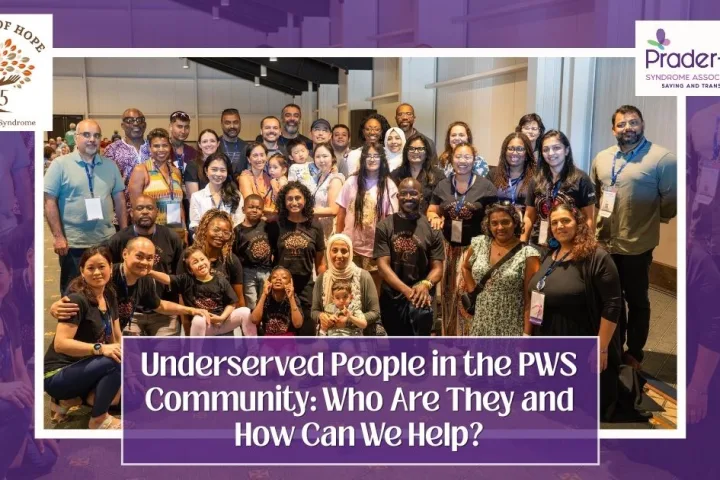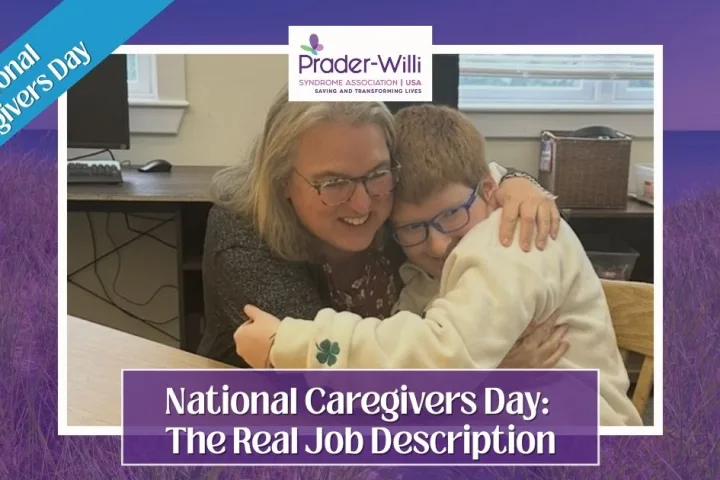Contributed by Justice Rickenbach
Ever since I can remember, I have been tired. Not the kind of tired you feel when you stay up too late or how you feel at the end of a busy day. The tired I feel is more like how you would feel if you were forced to stay awake for days. This feeling would keep me from doing most things and if I tried to go do anything fun, I would not be able to stay awake to enjoy them.
The really tired feeling was bad, but I would also lose control of all my muscles when I laughed or experienced strong emotions. I was fortunate that this happened to me in front of my neurologist. He took it very seriously and worked to find an answer. I was 5 when I was diagnosed with narcolepsy with cataplexy (type 1 narcolepsy).
Symptoms of narcolepsy are excessive daytime sleepiness, sleep paralysis, disrupted sleep, hallucinations around sleep, brain fog and cataplexy. While not everyone gets all of these symptoms people with narcolepsy may experience one or all of them. I am one of the lucky ones, I got all of them.
Cataplexy is one of the harder things I have dealt with. Cataplexy is hard to identify, it is often thought to be a seizure. The main difference between a seizure and cataplexy is that you remain conscious during a cataplexy attack. When I have a cataplexy episode; I can’t move but I can hear everything going on around me but can’t respond.
I think the hardest part of having narcolepsy is that I missed out on so much until we found the right medication. It wasn’t that I didn’t want to do things, my body physically couldn’t. I missed out on so much school and even when I was there the brain fog made it hard for me to learn.
Stress seems to be a big factor for me, I had so many cataplexy episodes at school because I was worried about having another episode at school. The school would panic and call an ambulance, the entire class would be interrupted. The thought of this happening caused me more stress which caused more episodes. I am grateful we were able to find the right medications to help with my symptoms. The symptoms are not completely gone but they are more under control.
I am fortunate that I got my diagnosis when I was young, not everyone gets that. There is no cure for narcolepsy and often the symptoms are overlooked. September 22 is World Narcolepsy Day. Take a few minutes to learn about this rare disease.
Share this!





 Perry A. Zirkel has written more than 1,500 publications on various aspects of school law, with an emphasis on legal issues in special education. He writes a regular column for NAESP’s Principal magazine and NASP’s Communiqué newsletter, and he did so previously for Phi Delta Kappan and Teaching Exceptional Children.
Perry A. Zirkel has written more than 1,500 publications on various aspects of school law, with an emphasis on legal issues in special education. He writes a regular column for NAESP’s Principal magazine and NASP’s Communiqué newsletter, and he did so previously for Phi Delta Kappan and Teaching Exceptional Children. Jennifer Bolander has been serving as a Special Education Specialist for PWSA (USA) since October of 2015. She is a graduate of John Carroll University and lives in Ohio with her husband Brad and daughters Kate (17), and Sophia (13) who was born with PWS.
Jennifer Bolander has been serving as a Special Education Specialist for PWSA (USA) since October of 2015. She is a graduate of John Carroll University and lives in Ohio with her husband Brad and daughters Kate (17), and Sophia (13) who was born with PWS. Dr. Amy McTighe is the PWS Program Manager and Inpatient Teacher at the Center for Prader-Willi Syndrome at the Children’s Institute of Pittsburgh. She graduated from Duquesne University receiving her Bachelor’s and Master’s degree in Education with a focus on elementary education, special education, and language arts.
Dr. Amy McTighe is the PWS Program Manager and Inpatient Teacher at the Center for Prader-Willi Syndrome at the Children’s Institute of Pittsburgh. She graduated from Duquesne University receiving her Bachelor’s and Master’s degree in Education with a focus on elementary education, special education, and language arts. Evan has worked with the Prader-Willi Syndrome Association (USA) since 2007 primarily as a Crisis Intervention and Family Support Counselor. Evans works with parents and schools to foster strong collaborative relationships and appropriate educational environments for students with PWS.
Evan has worked with the Prader-Willi Syndrome Association (USA) since 2007 primarily as a Crisis Intervention and Family Support Counselor. Evans works with parents and schools to foster strong collaborative relationships and appropriate educational environments for students with PWS. Staci Zimmerman works for Prader-Willi Syndrome Association of Colorado as an Individualized Education Program (IEP) consultant. Staci collaborates with the PWS multi-disciplinary clinic at the Children’s Hospital in Denver supporting families and school districts around the United States with their child’s Individual Educational Plan.
Staci Zimmerman works for Prader-Willi Syndrome Association of Colorado as an Individualized Education Program (IEP) consultant. Staci collaborates with the PWS multi-disciplinary clinic at the Children’s Hospital in Denver supporting families and school districts around the United States with their child’s Individual Educational Plan. Founded in 2001, SDLC is a non-profit legal services organization dedicated to protecting and advancing the legal rights of people with disabilities throughout the South. It partners with the Southern Poverty Law Center, Protection and Advocacy (P&A) programs, Legal Services Corporations (LSC) and disability organizations on major, systemic disability rights issues involving the Individuals with Disabilities Education Act (IDEA), Americans with Disabilities Act (ADA), and the federal Medicaid Act. Recently in November 2014, Jim retired.
Founded in 2001, SDLC is a non-profit legal services organization dedicated to protecting and advancing the legal rights of people with disabilities throughout the South. It partners with the Southern Poverty Law Center, Protection and Advocacy (P&A) programs, Legal Services Corporations (LSC) and disability organizations on major, systemic disability rights issues involving the Individuals with Disabilities Education Act (IDEA), Americans with Disabilities Act (ADA), and the federal Medicaid Act. Recently in November 2014, Jim retired.